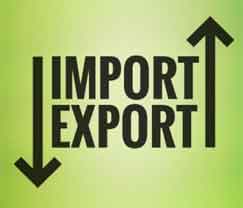President-elect Donald Trump obviously made trade a major issue in his election campaign, with promises to put a 35% tariff on goods imported from China and other measures to restore US manufacturing.
But the result could be something very different, featuring something called a "border adjustment," that could have a huge impact on imports and exports to and from the US.
Supply Chain Digest Says... |
 |
| The border adjustment program would raise supply chain costs for sectors like retail and automotive, which will surely fight the move. |
 |
What do you say? |
| Click here to send us your comments |
 |
| Click here to see reader feedback |
|
|
What are border adjustments? Border adjustments are taxes or tax exemptions that apply when payments for goods and services cross international borders. They have some similarity to the value-added taxes (VATs) used to tax businesses in many US trading partner countries. The US of course has never adopted a VAT system, and instead uses a business income tax, which at 35% is among the highest in developed economies. Many other countries have a VAT and a business income tax.
Republicans in Congress are working on a major overhaul of the US tax code, at the center of which may be a border adjustment regime. One plan supposedly being developed by Representative Kevin Brady of Texas would add the border adjustment in combination with reducing the top business income tax rate to 20%. At the core of the plan is using the border adjustments to encourage US exports and reduce US imports - a move that naturally enough has import-heavy sectors like retail concerned about their future costs.
The 20% tax would apply to goods produced and consumed in the US, and to all imported goods. Business income associated with product of goods in the US but exported would be waved, just as most nations with VAT taxes rebate those payments for exported goods.
In Brady's plan and in a VAT, a company's capital expenses could be deducted immediately, though net interest wouldn't be deductible. The only major difference between Brady's plan and other countries' VAT is that those taxes generally don't allow tax deductions for wages, while his proposal would.
The Wall Street Journal noted this week that "Viewed that way, the potential advantage for US-made products, whether intended for sale at home or abroad, is clear. The competitive advantage for American companies wouldn't stem from the border adjustment per se. It would come from the fact that other countries would still levy corporate taxes on top of VAT," while the US would not.
The Wall Street Journal explained how it would work in practice like this:
A US manufacturer exporting, say, machinery to France would pay US corporate income tax and France's VAT. Competing French machinery would bear the cost of the French income tax and VAT.
Under Brady's plan, all US taxes come off at the border. So US-produced machinery sold in France would bear only French VAT, while French-made counterparts would be subjected to French income tax and VAT.
The same occurs in the opposite direction. A British drugmaker exporting to the US would pay UK corporate tax and VAT. But that VAT would come off at the British border. A competing US-made product sold domestically at present would be subjected to US corporate income tax, which generally is higher than that of many other countries.
(See More Below)
|
CATEGORY SPONSOR: SOFTEON |
|
|
| |
|
|
But under Brady's plan, the imported UK drug, already bearing UK income tax, would get slapped with the new 20% tax at the US border.
 If that British company were to move production to the US, it would avoid the UK corporate tax and pay just the new 20% American tax. If that British company were to move production to the US, it would avoid the UK corporate tax and pay just the new 20% American tax.
A first blush, the border adjustment should indeed improve the economics for made in the USA versus imports, and give US manufacturers an exporters an advantage, as described above. However, as noted previously, it would raise supply chain costs for sectors like retail and automotive, which will surely fight the move.
Other countries may of course take their own actions - such as raising the VAT on imports from the US - to negate the change in competitive dynamics. Actions could also be filed against the US under the World Trade Organization's rules for trade.
Finally, some say that a short-term US advantage from the move will be lost over time as currencies adjust to the new realities.
For example, If US exporters, freed of tax, are able to charge less for their goods abroad, demand for them - and this the US dollar - could rise, leading to higher overseas prices and ultimately moderating overseas sales for those same products.
However, the American Action Forum, a think tank, looks favorably on border adjustments, noting that they eliminate the incentive to manipulate transfer prices in order to shift profits to lower-tax jurisdictions; and eliminate the incentive to shift profitable production activities abroad simply to take advantage of lower foreign tax rates, among other benefits.
Stay tuned on this one.
What do you think about this border adjustment plan? Let us know your thoughts at the Feedback section below.
Your Comments/Feedback
|